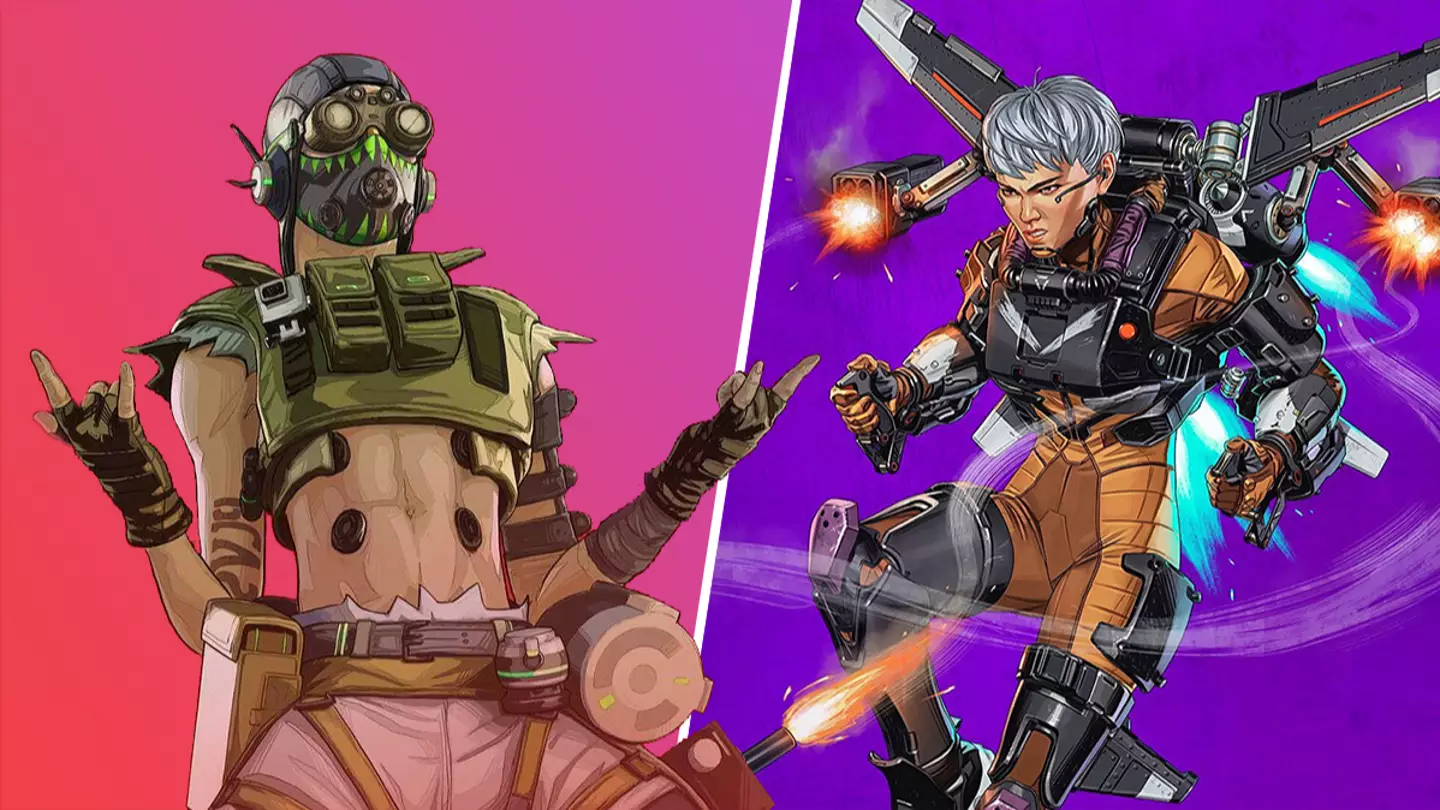
Steven Ferreira is all smiles. As the director of Respawn Entertainment’s hugely successful battle royale Apex Legends - a spin-off of the same studio’s celebrated Titanfall series of mech-centric first-person shooters - he’s reflecting on a third anniversary that was never guaranteed, while looking at a future that’s rarely been so promising.
“It’s been an amazing journey to get here,” he tells me. “The team is still pinching themselves quite often about the opportunity to keep doing this, innovating, and keep pushing forward. Apex never came from, like, a business plan of ‘here’s how we’re going to disrupt the market’. It was just a game born out of what the team liked to play themselves.”
Watch the gameplay trailer for Apex Legends season 12, Defiance, below
Advert
And yet, three years on from Apex Legends’ surprise release in February 2019 - Respawn was rumoured to be working on another Titanfall entry, but the battle royale twist wasn’t widely reported pre-release - that game made just because the team liked it has attracted an estimated 128 million players. Its first 50 million it achieved in its first month, and it passed 100 million players in April 2021. So yes, the total players growth of the game is slowing, as is expected with any service-style game - but with weekly active players numbering 13 million as of August 2021, Apex Legends is a titan in its class.
And within that huge player base is an active and passionate community that Ferreira is grateful for. “It’s an amazing privilege to have a community that stays as positive as they are,” he says. “I think a lot of people can connect, and resonate, with elements of the game. Everything starts with gameplay feel - the core movement, the core weapon gameplay, that core loop of encounters and engagements. But our Legends are special, and such a fundamental part of our game.”
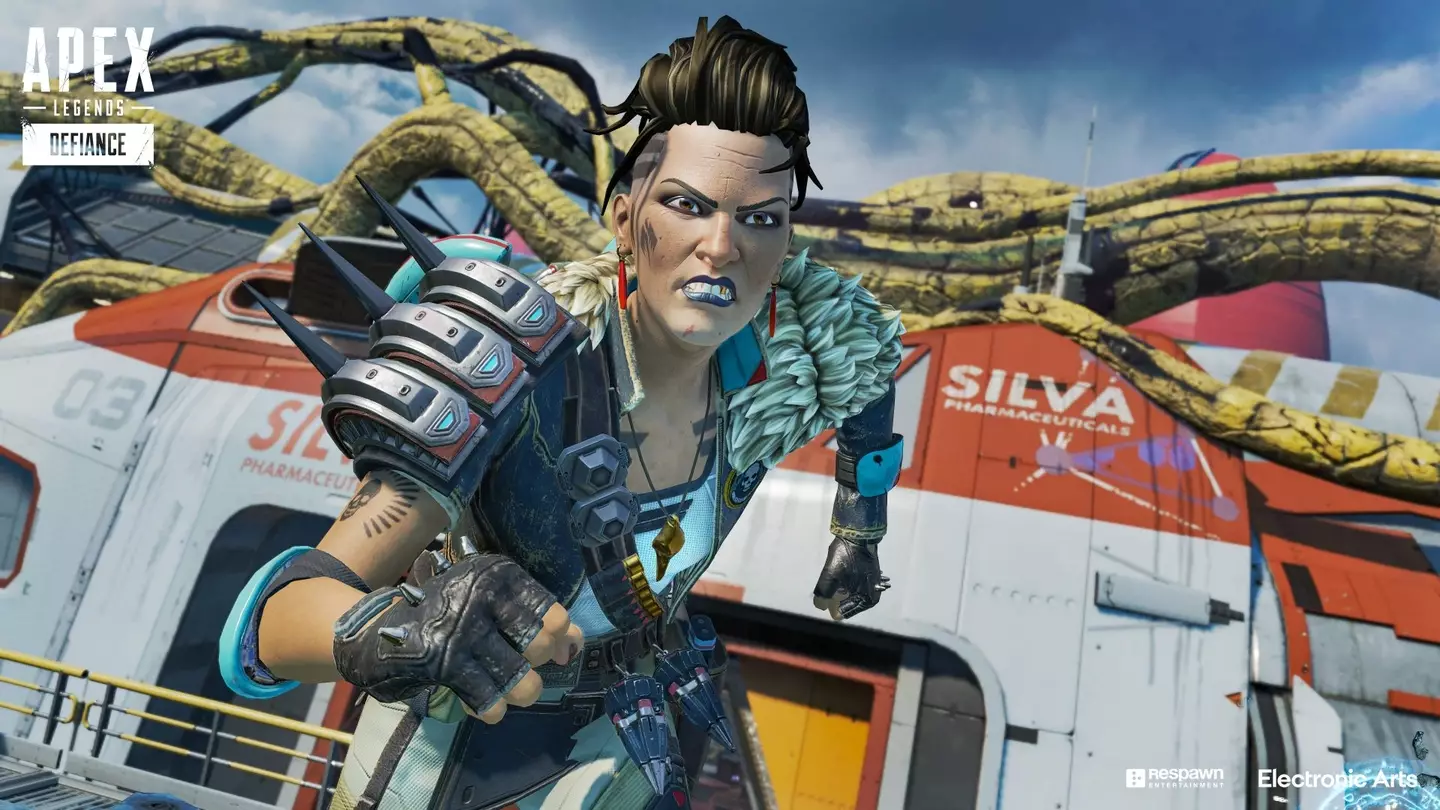
The Legends of Apex Legends are, and forgive me for stating the obvious here, the characters you choose to play as - and they’re a wildly varied bunch. As of the start of season 12, a new chapter of the game titled Defiance, the Legend count is up to 20, with newcomer Mad Maggie introduced as a ‘rebel warlord’ with connections to another Legend, the explosives expert Fuse. I ask Ferreira what the creative process is for introducing a fresh Legend to the challenges of Storm Point, World’s Edge et al.
“We take our ideas from everywhere,” he says. “And it can start with the smallest thing. Back in the days when we were actually all in the same studio and not working from our basements or bedrooms, we had this giant, like 30-foot wall, and that was the idea wall. Anyone could walk by, at any time of the day, and put a little note on there - a personality trait, or an ability, or even a sketch of a character, or a character flaw. When we were a smaller team, it was almost a rite of passage, to go to the idea wall to get an understanding of what it was to build the fundamentals of a Legend. Since we’ve been working from home, we’ve tried many ways to recreate that process, and honestly there’s been nothing that works so well. There’s just something tactile about everything being in one place. But now that development happens through organic conversations between the team, in meetings or play testing, or on a coffee break.”
---
“We want to create personalities people can see themselves in… and look past those kinds of characters that have been done over and over again.”
---
It’s often the case that creation by committee leads to awfully hackneyed results - but in Respawn’s situation, it feels that even working remotely they’re able to build each Legend up in a fashion that’s less about box ticking based on data samples and competitor analysis, and more about that conversation between two or three people where there’s that spark of, hey, this would be neat. Such is the case with Mad Maggie.
“We didn’t ever go in like, okay, let’s build Maggie,” Ferreira says. “Maggie is the product of a development process that goes back to understanding who Fuse was, back in season eight. How did Fuse become Fuse? Who was around him to shape his personality? The way he thinks? And we came up with Maggie as someone who had to be as extreme, if not more so - she had to be a step up in terms of everything that fed into Fuse’s personality. Once we had that, she started to resonate with the team, and she went on the wall. We had a sketch on the wall of her when the launch trailer came out for Fuse - and we knew that some day she’d be a Legend too.”
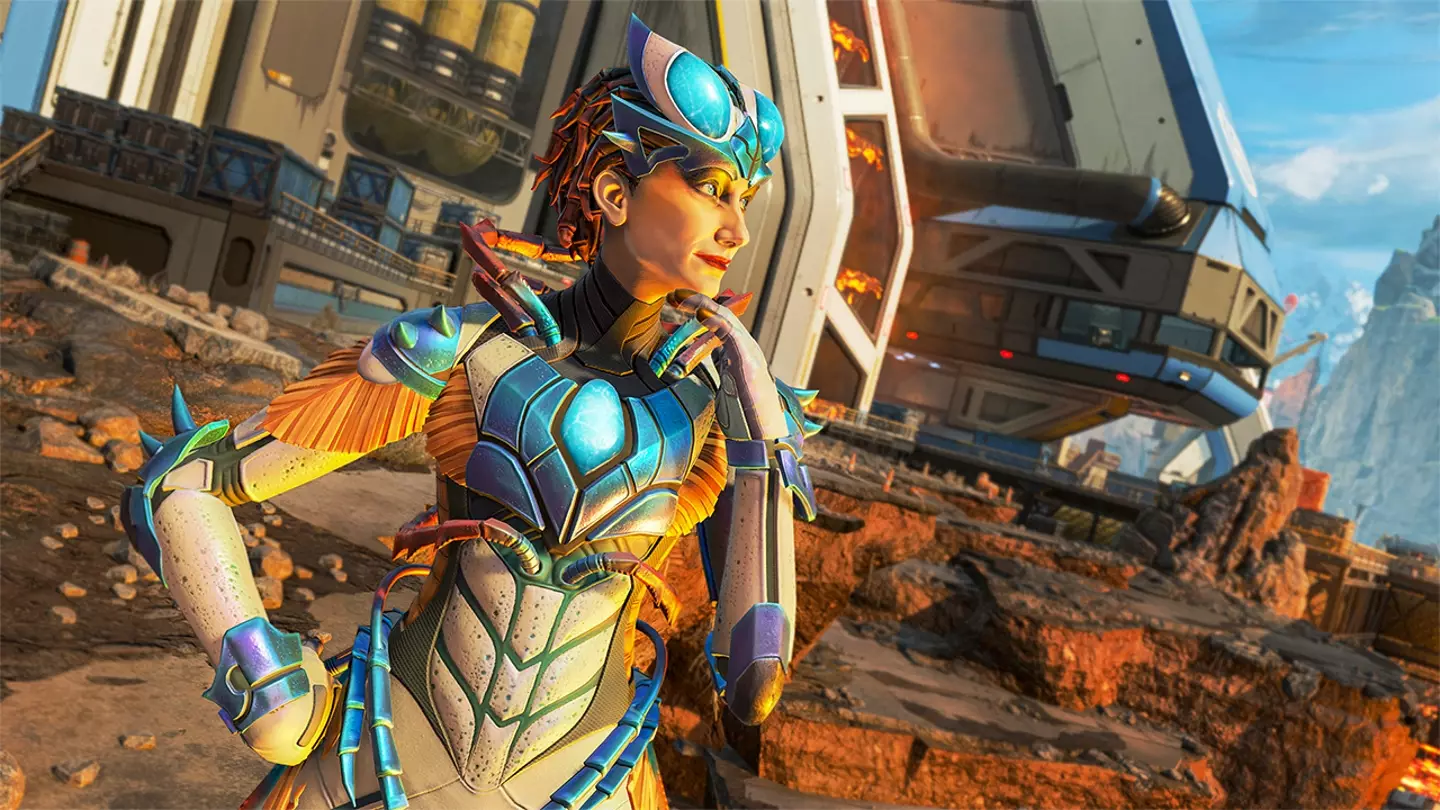
As a 50-something, and a woman too, Maggie is something of a rarity among playable gaming characters to say the least. But age, as well as backgrounds, experiences, nationalities, beliefs, is another vital ingredient of hoping, if not quite ensuring, that Legends can reflect some of the reality of their players. The gaming audience is growing up all the time; Apex Legends is played by teens and people in their 40s, 50s and older; it’s played by parents, grandparents even. “We want to create personalities people can see themselves in,” Ferreira says. “And I think we need to look past those kinds of characters that have been done over and over again. Take Horizon for example (pictured above, the Legend introduced in season seven, Ascension). Being a mother was key to her character, fundamental to the way she thinks and behaves. You don’t often see the action-hero mother in games, or movies - I suppose Terminator is an exception.
“And with Maggie too, she’s had experiences that go deeper than her surface-level chaos. She might seem one dimensional, but how she is now actually goes back to who she was as a child, and she’s only come to see the world the way she does over many, many years. If we’d made her a 20 year old, she’d just be whiny, angry at the world for reasons she hasn't figured out yet. But Maggie… Well, she may seem to be a villain for villain’s sake at first glance, but that’s really not the case.”
One aspect of Apex Legends that is sometimes criticised, albeit largely from a position of relative ignorance, is its choice of engine - it’s built on (a heavily modified version of) Valve’s Source engine, which powered Half-Life 2 way back in 2004. You might think this would potentially hold the game’s makers back from really pushing Apex in the way that we see Fortnite doing, on Unreal Engine 5.
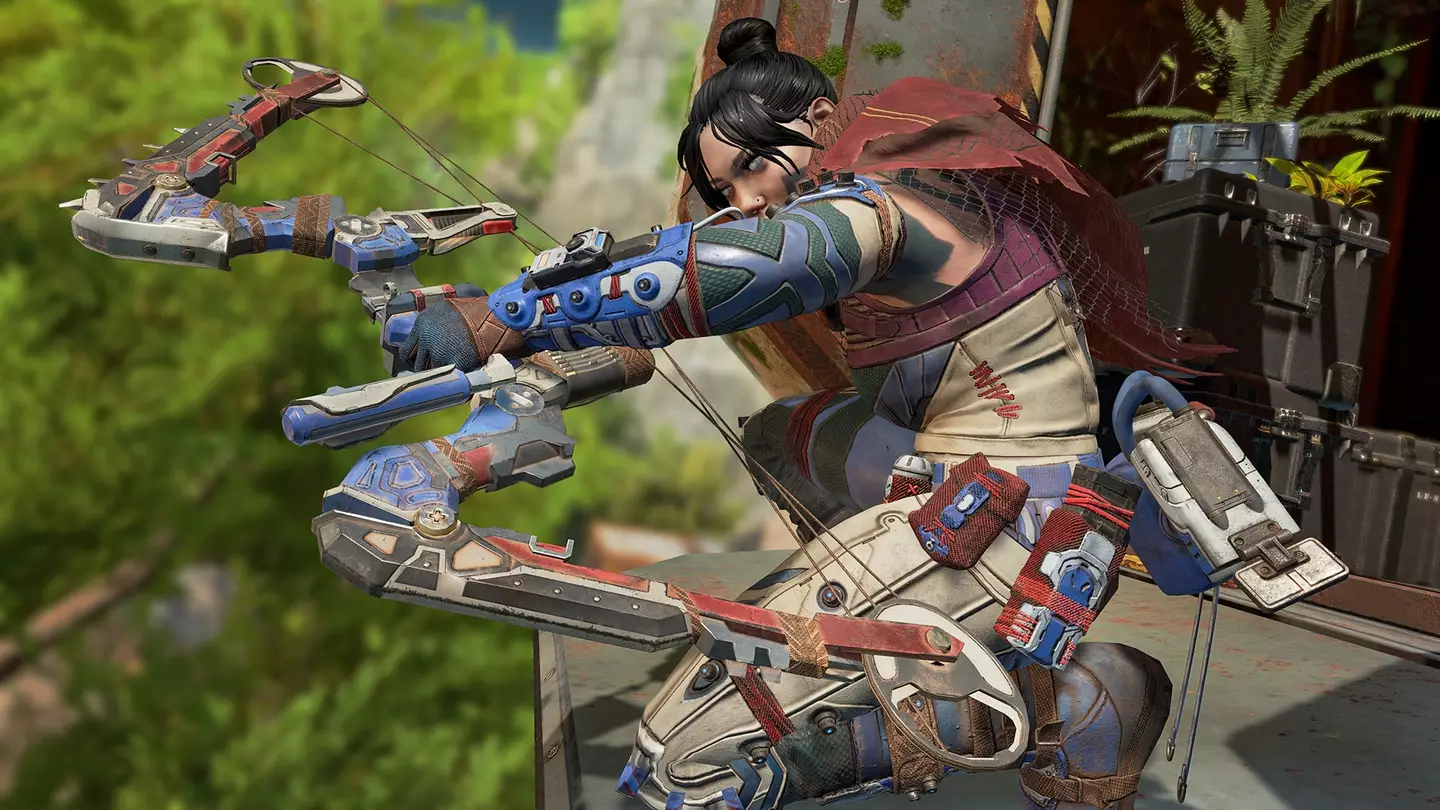
Says Ferreira: “We chose Source because, rather than spend a lot of time building new engines or getting used to new stuff, we wanted the fastest and coolest way to make something different. Because you need to play things, and if you spend time not testing ideas, they’ll just rot away. So we could have moved to another engine after Titanfall 2, but that wasn’t going to get us to our goal fast enough. And besides, we still haven’t stretched Source’s capabilities yet - because we’re always in control of expanding those boundaries ourselves. We have no intention of moving away from it soon.
“Also, there’s a feel to how Apex Legends plays that comes from Titanfall, and from using Source. And that’s valuable, and very special to us. It’s something we don’t want to replace, so we’ll keep advancing it instead.”
---
“Everything in our game is a living entity - it can evolve, either because we think it needs to for the health of the game, or whether it's just time to do something fun and shake things up.”
---
In terms of both game feel and its playable cast, Apex Legends feels like a more complete, more coherent product, a universe if you will, than the pop-culture explosion of Fortnite - which while appealing on a fundamental level of it’s a load of fun, can’t not look odd when characters from Star Wars and Resident Evil are facing off against Spider-Man and Rick Sanchez. It’s also more vibrant, a more fantastical and fulfilling escape from the grey of everyday than the sold-as-authentic military multiplayers on the market, for my money anyway. In those senses, it’s as cutting edge as battle royale games get - and that’s before you start exploring its alternative modes of play.
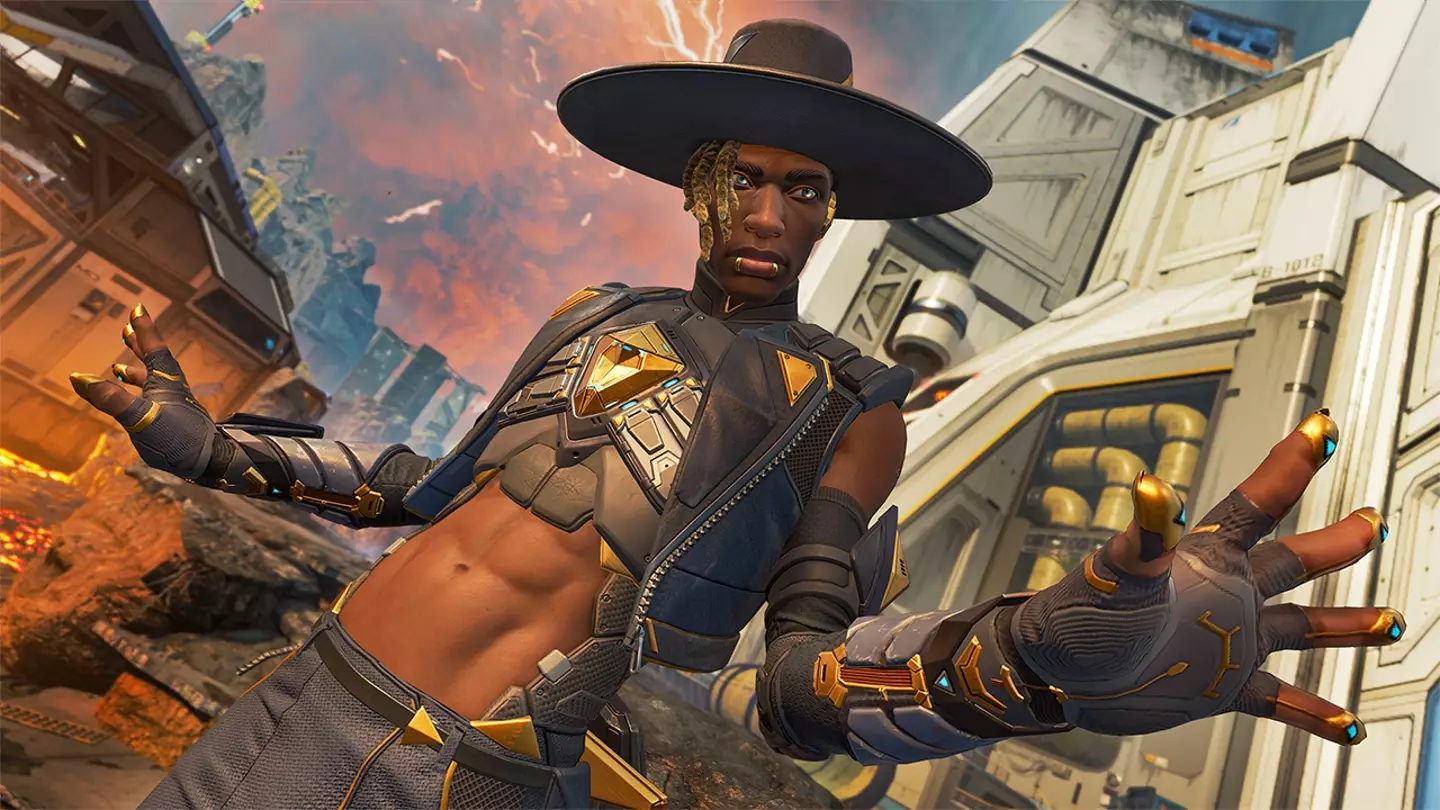
Ferreira isn’t resting on any laurels, however. While the three-year anniversary is a significant milestone when we’ve seen other battle royale games likes Radical Heights and Hyper Scape die away in what feels like a matter of months after their launches, Apex Legends will only continue to evolve, to shift metas and incorporate new landscapes to wage its bloodsports across.
“It’s our duty to keep the content fresh,” he says. “But also, it doesn’t have to be right straight away. Everything in our game is a living entity - it can evolve, either because we think it needs to for the health of the game, or whether it's just time to do something fun and shake things up. There's a lot of new design space that we're excited to explore, and we’re going to do that, to try some different things. And you're going to continue to see a lot more of that coming this year. So we're excited.”
Apex Legends’ season 12, Defiance, is live now. Apex Legends is free to play on PlayStation and Xbox consoles, Nintendo Switch, PC, Android and iOS.
Topics: Interview, Apex Legends
